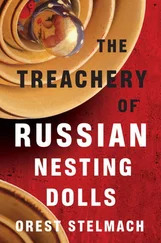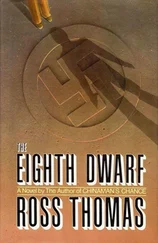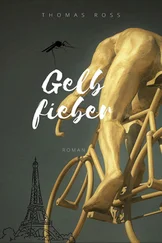“Afraid not.”
“After the murders, Colonel Hudson quickly — very, very quickly — rises to major general and Captain Millwed makes it to major and then full colonel, skipping over lieutenant colonel. I can’t help but wonder if their silence about the murders was bought by their meteoric rise in rank and the one-point-two million they were permitted, maybe even encouraged, to steal?”
“Beats me,” Viar said.
“The name of that unfortunate Major. Was it Partain by any chance?”
“Edd-with-two-ds Partain.”
“Any idea of where he is now?”
“None.”
“Too bad,” the General said and rose. “Well, I do thank you for your time and patience.”
“Why’d you really come?” Viar said, not rising. “You already knew everything before you got here.”
“Some, but not all,” the General said. “You confirmed a couple of points and supplied some interesting, even amusing, verisimilitude. The Deutsche Post mailbag, for instance, and that four-fingered Mickey Mouse seal. I rather enjoyed them.”
Viar, still seated, grinned up at the General. “Then you won’t mind if I give General Hudson a ring and tell him you’ve been here, nosing around?”
“Mind?” Winfield said. “Good Lord, Hank, that was the entire purpose of my visit.”
At 9:23 P.M., EST, General Winfield, wearing his Borsalino and camel hair topcoat, its collar turned up against the 36-degree chill, closed the front door of the small house on Volta Place, and began to walk to his car. Five minutes later, at 6:28 P.M. PST, Edd Partain braked the Lexus coupe to a stop on the curved drive in front of the Eden on Wilshire Boulevard.
Jack, the doorman, appeared as Partain got out of the car, leaving the key in the ignition. “He came back,” Jack said after Partain shut the not-quite-closed door with a hip to silence the insistent you-left-the-key-in-the-ignition chime.
“Who?”
“This morning’s false messenger. Except this time he was totally immersed in his new role of David Laney, bibulous man about town.”
Partain studied the doorman for a moment, noting the almost too regular and still-young features, the slight tan and the interested gray-blue eyes. “You an actor?” Partain said.
“From five P.M. to one A.M., I’m Jack, an obsequious doorman. The rest of the time I’m Jack Thomson, without the usual ‘p,’ a sometime actor.” He smiled then, a wry, carefully crooked smile that displayed wonderful teeth. “Except it’s not supposed to show.”
“It’s mostly the voice,” Partain said. “There’s no trace of regional accent.”
“Yeah, well, the one I’m using now is my standard American. Upon demand, I can do Deep South, Jersey low-life, west Texas, Scandinavian-tinged Minnesota, fair Cajun and an almost featureless Omaha, where a lot of eight-hundred-number companies are now locating because of all those white-bread voices.”
“You get much work?”
Thomson shook his head. “A TV commercial voice-over once in a while and some radio spots. They say my looks are too second-leadish for films. That’s why I almost hoped Laney was shitfaced enough to take a poke at me and maybe break my nose, leaving me with a slight but memorable flaw.”
“How’d you hear about Laney playing messenger boy?”
“From Tom, the day man. We share whatever gossip there is at the shift change. Normally, we don’t have a lot to talk about. But Laney and his false-messenger dodge was a choice morsel.”
“How shitfaced was he this afternoon?”
“His diction was good although his eyes were sort of waltzing around. He also had a nice mouse under the right one. No staggers, though. No goofy smile. But he must have gargled a quart of Scope.”
“I suppose he wanted to go back up to the Altford place.”
“Insisted on it. I called Jessie Carver from the outside phone and she said no, not now, not ever. But by then Laney was through the front doors, into the elevator and on his way up.”
“I thought those doors were always locked,” Partain said.
“They are, but he had somebody’s key card. I stopped his elevator between floors, took the other one up, coaxed him out and walked him down six flights of stairs. He kind of tripped over my foot and fell the last few steps, but bounced right up and promised to be back after I got off.”
“You take the key card away from him?” Partain asked.
“That’s not in my job description.”
“You get off at one A.M., right?”
The doorman nodded with a faint smile.
“Then I’ll wait up for him,” Partain said.
The faint smile was still in place when Jack Thomson said, “I thought you might.”
Jessica Carver served herself a second helping of the corned beef hash from the old iron skillet that Partain had placed on the heirloom kitchen table. To the left of the skillet was a yellow ceramic mixing bowl that held a tossed salad of tomatoes, two kinds of lettuce and a thinly sliced sweet onion, allegedly from Vidalia, Georgia. The salad dressing was the only one Partain ever used: nine parts olive oil; one part red wine vinegar; vinegar-soaked salt; ground black pepper, and more garlic than most people liked. Jessica Carver also had more of the salad.
They ate in silence until Carver finished her hash, leaned back in her chair and said, “You really like to cook?”
“No.”
“Then why bother?”
“Because it’s cheaper than eating out.”
“That poor-boy act of yours. Is it inspired by poverty or parsimony?”
“A little of both.”
“What’d you do in the Army for fun, when you weren’t soldiering?”
“I read a lot.”
“What?”
“European history. When I got to World War One I always stopped.”
“Why?”
“Because I already knew how it’d end in nineteen-forty-five.”
“That was the end of World War Two, not One.”
“Was it?” Partain said and smiled to take the edge off his answer. He was still smiling slightly when he said, “Tell me about you and Dave Laney.”
“I already told you. He’s a shit I lived with in Mexico.”
“Where’d you meet him?”
“God, I hate that question,” she said. “ ‘Where did you two meet?’ It’s as if everyone’s expecting something cute — like in the movies. So for a while I’d give them cute: ‘A bellhop at the Biltmore sent me up to his room.’ ”
“Dave says you met during the Dukakis campaign in ’eighty-eight.”
“He lied. We met in November of ’ninety-one at a Beverly Hills wedding reception my mother’d dragged me to. I don’t know why Dave was there because he didn’t seem to know the bride or groom. Millie was working the room like a coyote. I stood in a corner, drinking the free Dom Pérignon and wearing something I’d got at the Nordstrom Rack in the Valley for ninety-six bucks that looked like nine hundred and sixty. That’s why Dave made his move. He thought I looked like money.”
“You do,” Partain said.
“Almost any woman who stays out of the sun, is under forty and doesn’t have a weight problem can look like money in this town. But for some reason, men can’t fake it. Money, I mean. Dave sure as hell can’t.”
“Why?”
“Take those clothes he wears. He looks like some real tan guy who walks into Carroll and Company on Rodeo and says, ‘Sell me some stuff that’ll make me look rich.’ And that’s what they do: sell him stuffthat’ll make him look like a guy who wants to look rich but isn’t.”
“Then Dave’s what — medium rich?”
She studied him for a second or two, smiled a small superior smile and said, “He told you about his trust funds, didn’t he?”
“In passing.”
Читать дальше












